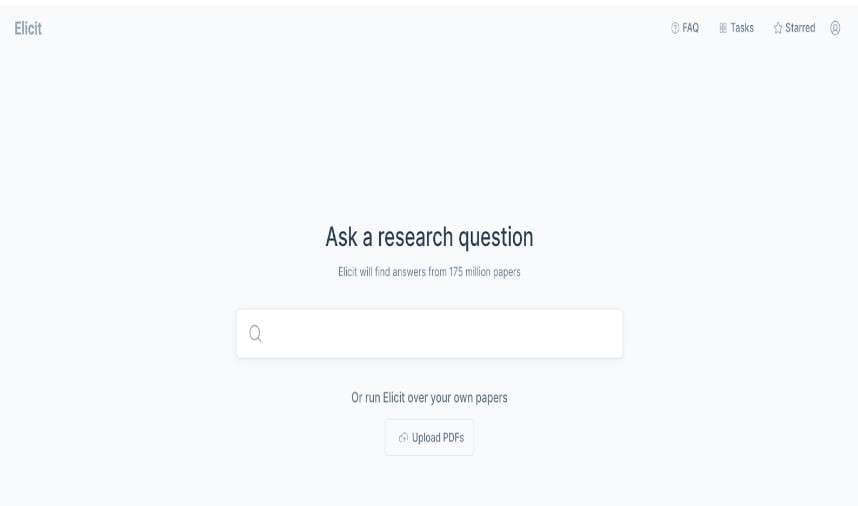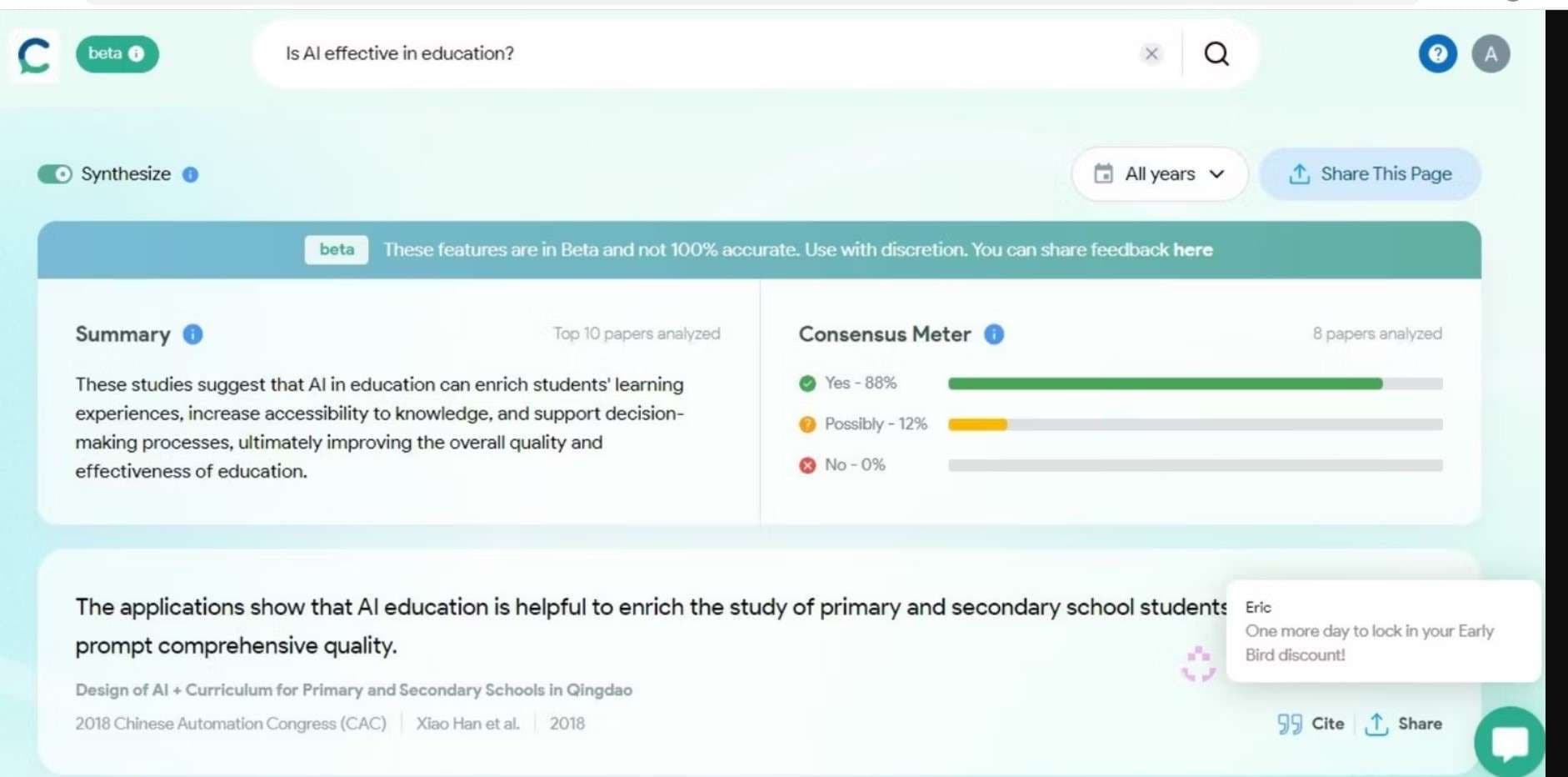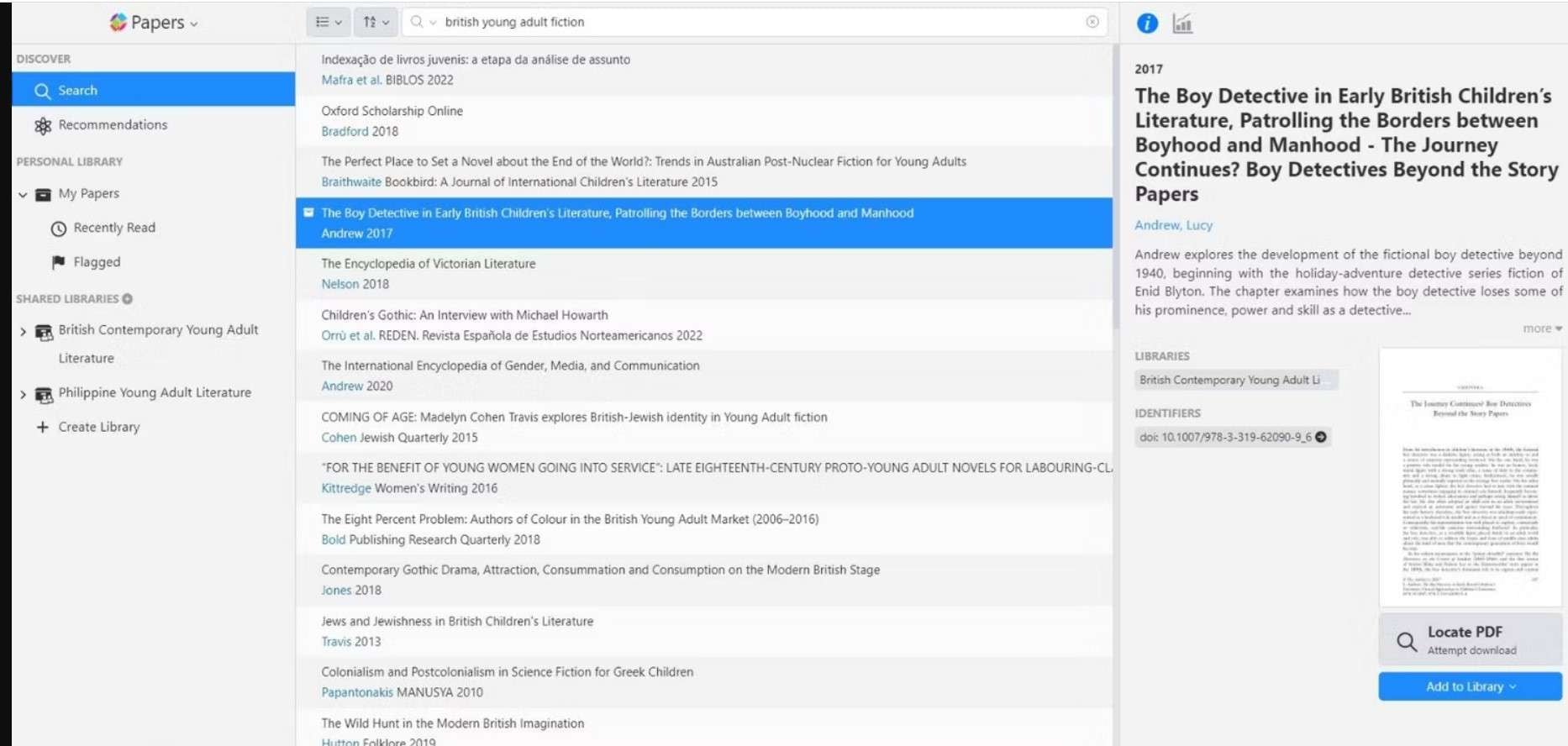Research requires a lot of energy, cognitive resources, and time. You must search for information, compile survey data, and crunch numbers into spreadsheets daily. But with the power of AI tools, you can get explanations for scientific research papers in less time. These days, these modern AI tools have revolutionized the research landscape. If you are a researcher by profession or a student searching for something, AI tools are here to help you. Read this article introducing you to the top 5 AI tools for researchers.
In this article
Part 1: What are AI Tools in Research: An Overview
AI tools use AI and ML algorithms to streamline and enhance the research process. These tools offer researchers unprecedented automation and precision. Using AI's power, researchers can make informed decisions based on data. These AI tools enable researchers to handle massive datasets and improve the pace of discovery. They can identify relevant data points and extract valuable insights quickly.
Is that it? No, here are more reasons to make use of AI tools for research:
- Process and analyze data quickly and efficiently.
- It helps to automate repetitive tasks, saving time and minimizing human error.
- Aids in gaining advanced insights and predictive capabilities through powerful algorithms.
- It guides you to extract valuable information from unstructured data, such as text documents.
- It allows you to collaborate with other researchers easily and share knowledge seamlessly.
Part 2: Which are the top 5 AI Tools for Researchers?
Now that you know what an AI tool in research is and why to use it. In this part, I will explore the five best AI tools.
So, let us get started!
1. IBM Watson
IBM Watson is a renowned AI platform offering tools and services tailored for research applications. Watson can analyze large volumes of text data such as scientific literature and clinical records with its NLP algorithms. It provides researchers with a lot of information and insights and drives their research forward. Watson's user-friendly interface makes it accessible to researchers with varying technical expertise.

2. Google Scholar
The following popular AI tool for research is Google Scholar. This AI tool utilizes AI algorithms to index scholarly literature across various disciplines. It allows researchers to search for articles, books, conference papers, and theses. With its citation analysis features, researchers can gauge the influence of specific articles. It also offers personalized recommendations based on the user's research interests.

3. Elicit
A third top AI tool for researchers is Elicit. Elicit helps you conduct literature reviews and searches. If you have a question about a topic you are interested in, search for the same. Then, the app will find relevant papers and research documents pertinent to your query. And, finally, summarize the observations from those papers following your question. In this way, you will save time by not evaluating the relevance of all articles.
Elicit works like a search engine by providing reliable sources for your inquiries. Depending on your preference, it may be used from your browser or as a desktop application. You may find a Summary on the left; in the middle, you can find the paper's title along with the author and title of the source on the interface. The Abstract Summary of each resource is presented in the right-hand column.

4. Consensus
Artificial intelligence poses several urgent hazards, including false information and fake news. Artificial intelligence poses several critical threats, such as incorrect information and fake news. If you're not attentive, you can be taken in by its facile responses.
By offering fact-based responses to research questions, the consensus is one of the AI tools for research that avoids these issues. The answers can then be distributed by copying the text, sending the link, or reposting on Twitter. Additionally, you may copy the citations in several forms. Consensus directs you to the journal article, so you may read the entire article if you click on a particular response.

5. ReadCube Papers
You can read academic publications from anywhere with ReadCube Papers. ReadCube Papers is an AI-powered reference management and citation tool. You may conduct research wherever you are. And it is possible because of the tool's simple article reading, annotation, and sharing capabilities.
Annotation, which allows you to mark specific passages from an article, is a crucial function for scholars. Your highlights are saved in the article's main dashboard through annotation. Click the Notes icon on the main dashboard to view, filter, sort, and copy your annotations.

Part 3: What is the Future of AI Tools In Research?
The future of AI tools for research is encouraging. As technology advances, it can be anticipated even more sophisticated AI tools that seamlessly integrate into research workflows. Advancements in explainable AI and federated learning will address transparency and data privacy concerns. Furthermore, AI tools will empower researchers across disciplines, fostering interdisciplinary collaboration and accelerating discoveries that will shape the future of humanity.
Conclusion
That’s it! In this article, I have explained all about AI tools for researchers. It takes a lot of time and effort to study and educate. But these AI tools are here to assist you in getting back to that time. You may do your task more swiftly and efficiently by accessing resources using them.
FAQ
-
Q1: Can AI be used as a tool for research?
A potent new tool for scientific study is artificial intelligence. They can aid researchers in time savings, bettering their job, and accelerating their advancement. -
Q2: What is the research paper writing AI tool?
Google Bard is the research paper writing AI tool. This AI tool makes the writing of scientific research articles more productive for researchers. -
Q3: How does AI benefit researchers?
Peer-reviewed research is scanned by AI, which then extracts each study's key findings. Users can access known scholars' work more rapidly than manual searching. -
Q4: Can AI take the position of researcher?
Human knowledge and ingenuity are essential for successful solutions to the Covid-19 outbreak. Although AI can take the place of some duties, it cannot take the place of human problem-solving skills.

 ChatGPT
ChatGPT
 Perplexity
Perplexity
 Google AI Mode
Google AI Mode
 Grok
Grok

